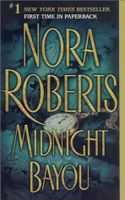A Great Catch, by Michele Jerott
>> Tuesday, September 30, 2003
Yet another reread last weekend was A Great Catch, by Michele Jerott, now writing as Michele Albert.
The man who got away is back: After years of working her way upward in the male-dominated maritime world of Great Lakes shipping, Tessa Jardine lands her dream job as first mate on the passenger ship SS Taliesen -- a dream job until she meets her captain, Lucas Hall. Ten years ago, Lucas broke her young heart when he walked away from her without a word of farewell, and she can't forgive him for that -- or for his more recent part in a failed rescue attempt that cost her younger brother his life. Now Lucas, the ex-Coast Guard hero, is back to complicate her life. Working together day after day, Lucas and Tessa discover the attraction between them is still hot and heavy -- but can Tessa forgive Lucas, or ever learn to trust him again? And what will Lucas have to do to win back her love?This one and All Night Long have been my favourites by her since I first read them, and the rereads have confirmed this. A B+.
Let's see, what did I like about this book?
- The fascinating, very original setting. It's not every day that you read a book set on a cruise ship sailing the Great Lakes. I probably decided to reread it after watching a fascinating segment at The History Channel about the Edmund Fitzgerald, a boat that sank in the Great Lakes in the 1970s.
- Characters who talked, maturely about their problems. They had really big issues to get through, and I bought that they did enough to fall inlove.
- The suspense subplot. This is often my least favourite part of most books, but here I enjoyed it. The little notes, with the clues, the way it didn't take over from the romance... this is how I like it.
- A small thing, yes, but I loved that Tessa reads romance novels. It's no big issue, she just does, but it was a lovely touch.
- The cover, with its gorgeous twilight colours and attractive people in a nice position. I've heard that a big reason why this author's "Michelle Jerott" books didn't do well was because of their covers, so I guess I must be the only one who found them attractive.

Now, what I didn't like:
- The very unprofessional behaviour. Yes, Dee Stanhope's no fraternization rule was pretty stupid, and I understand that they didn't have a problem breaking it in their own time, but doing it while on the ship was beyond the pale. I didn't like the way Lucas kept initiating things and that Tess was weak and didn't just rip his head off about it.
The most frustrating thing was that she delivered a very nice speech about how she was the one who had the most to lose, and that she didn't want to risk that, but they immediately end up in bed. And mind you, we're not talking about never ever making love again, we're only talking about keeping it zipped while on the ship!
Read more...











